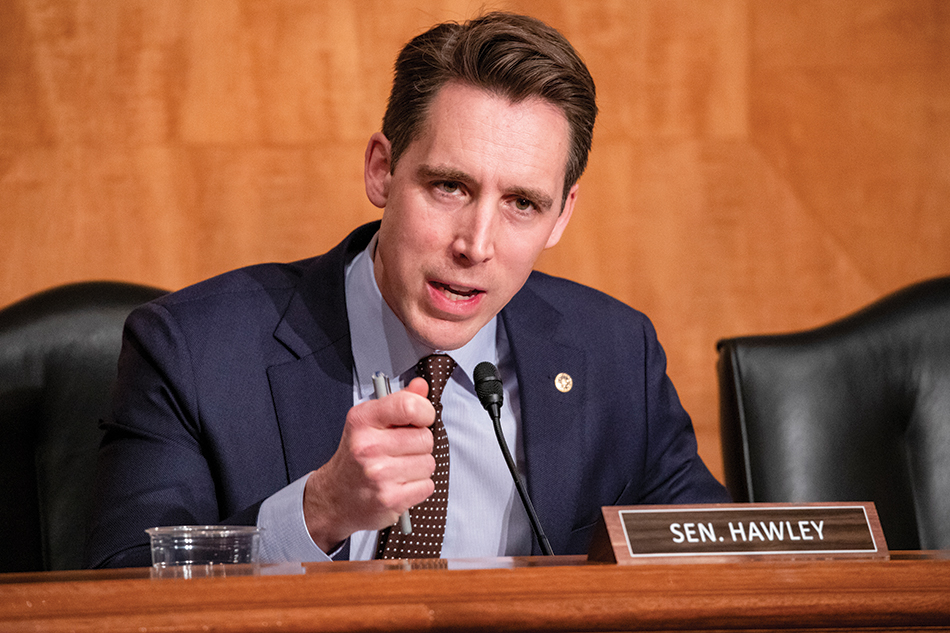GOP Senators Introduces Sec. 230-Targeted Bill

The smarter way to stay on top of the multichannel video marketplace. Sign up below.
You are now subscribed
Your newsletter sign-up was successful
Sen. Josh Hawley (R-Mo.) and some of his Republican colleagues are looking to put legislative muscle behind President Trump's effort to regulate how social media sites treat third party content, even likening it to fighting discriminatory policing, an issue much in the news.
Related: GOP Senators Seek FCC Input on Sec. 230
Along with Sens. Marco Rubio (R-Fla.), Mike Braun (R-Ind.) and Tom Cotton (R-Ark.), he has introduced a bill that would would effectively eliminate a web site's Sec. 230 immunity from civil liability by eliminating it unless they "update their terms of service to promise to operate in good faith." They would also agree to pay attorneys fees and $5,000 to each Web site user if it was proved they had violated that promise, which for some Big Tech giants would amount to billions of dollars.
Hawley has been one of the sharpest critics of Sec. 230, as well as Big Tech in general.
Specifically under the bill:
1. "Users could sue the major Big Tech companies for breaching their contractual duty of good faith;
2. "The duty of good faith would contractually prohibit Big Tech from: Discriminating when enforcing the terms of service they write (just like police and prosecutors are not supposed to discriminate when enforcing the law); "Failing to honor their promises;
The smarter way to stay on top of the multichannel video marketplace. Sign up below.
3. "Big Tech companies who breach their duty of good faith would have to pay $5,000 plus attorney’s fees to each user who prevails."
“For too long, Big Tech companies like Twitter, Google and Facebook have used their power to silence political speech from conservatives without any recourse for users," said Hawley. "Section 230 has been stretched and rewritten by courts to give these companies outlandish power over speech without accountability. Congress should act to ensure bad actors are not given a free pass to censor and silence their opponents.”
Related: Trump Threatens to Shut Down Social Media
President Trump, targeting what he has long said was social media's attempt to suppress conservative speech, last month issued "Executive Order on Preventing Online Censorship," which mandates that Commerce's National Telecommunications & Information Administration ask the FCC to come up with a framework for exempting censorship of political speech from that so-called Sec. 230 exemption.
The President even threatened to "close down" Twitter over its perceived anti-conservative bias after the site put a fact check label on his tweets about absentee ballots and obscured another about shooting protesters for inciting violence.
Contributing editor John Eggerton has been an editor and/or writer on media regulation, legislation and policy for over four decades, including covering the FCC, FTC, Congress, the major media trade associations, and the federal courts. In addition to Multichannel News and Broadcasting + Cable, his work has appeared in Radio World, TV Technology, TV Fax, This Week in Consumer Electronics, Variety and the Encyclopedia Britannica.

